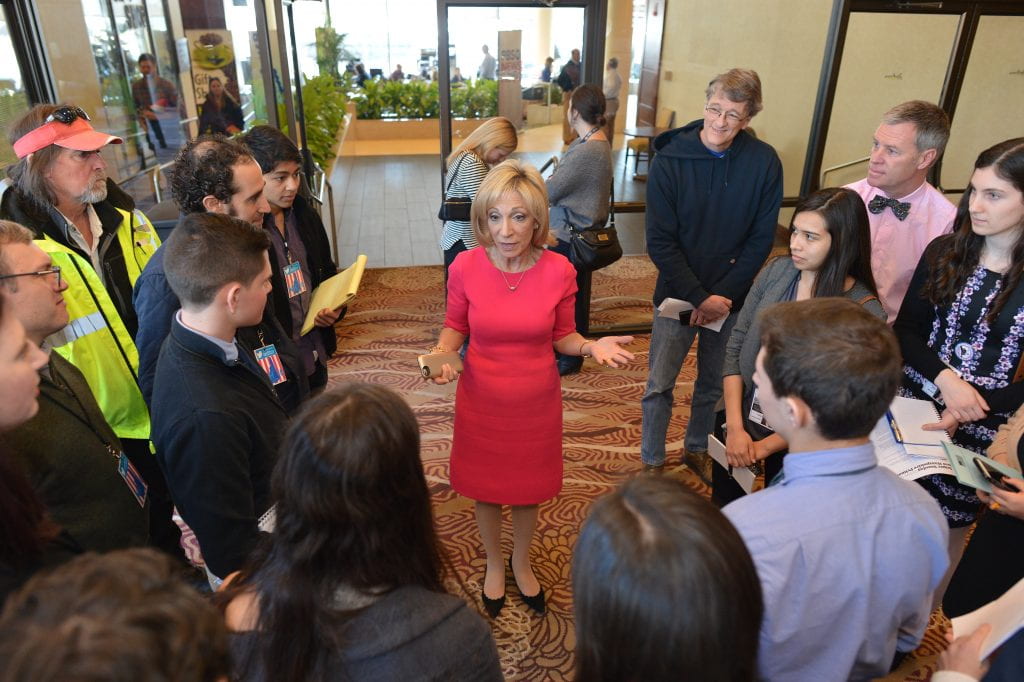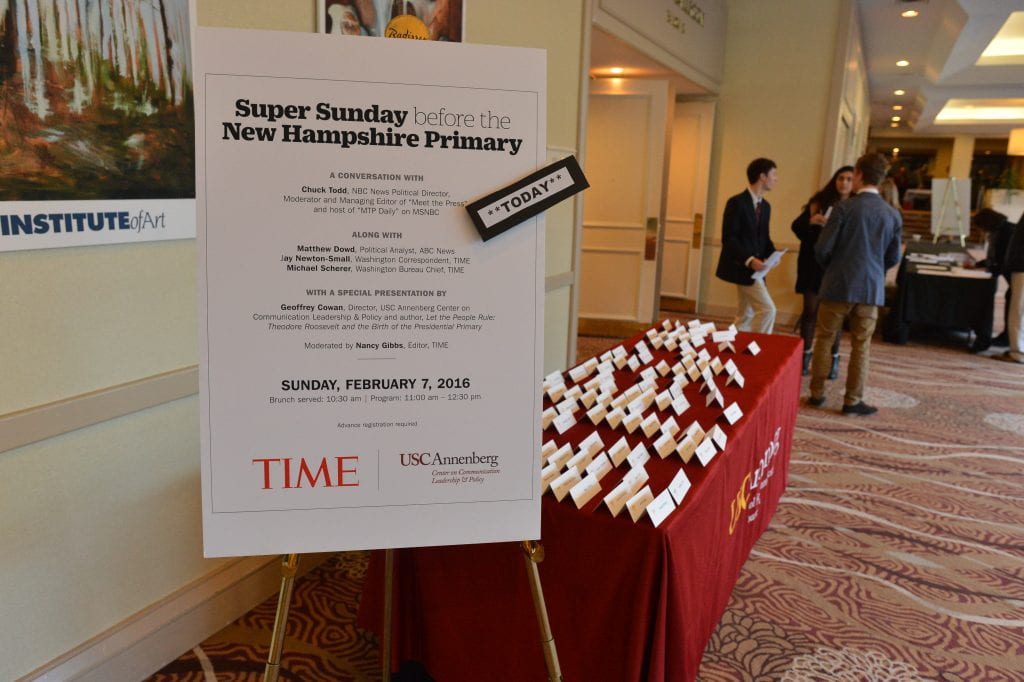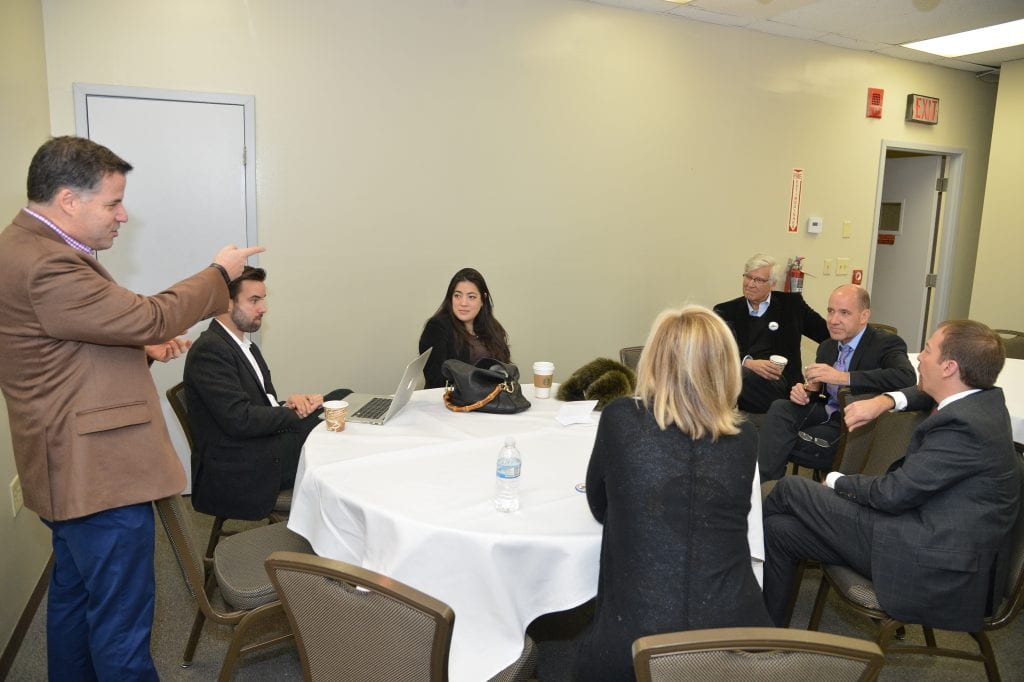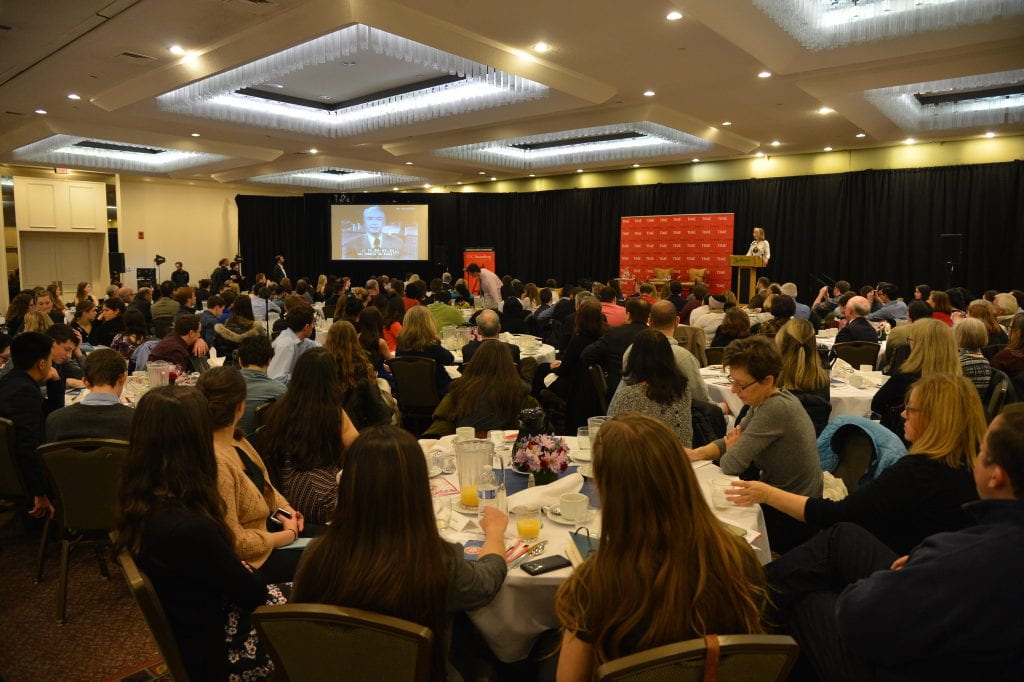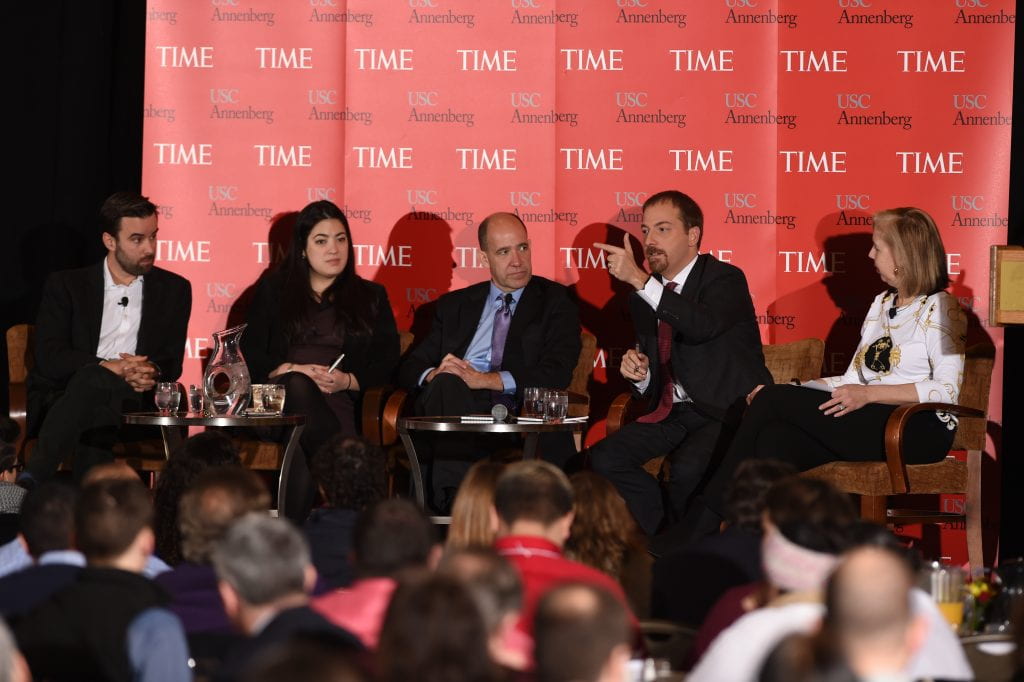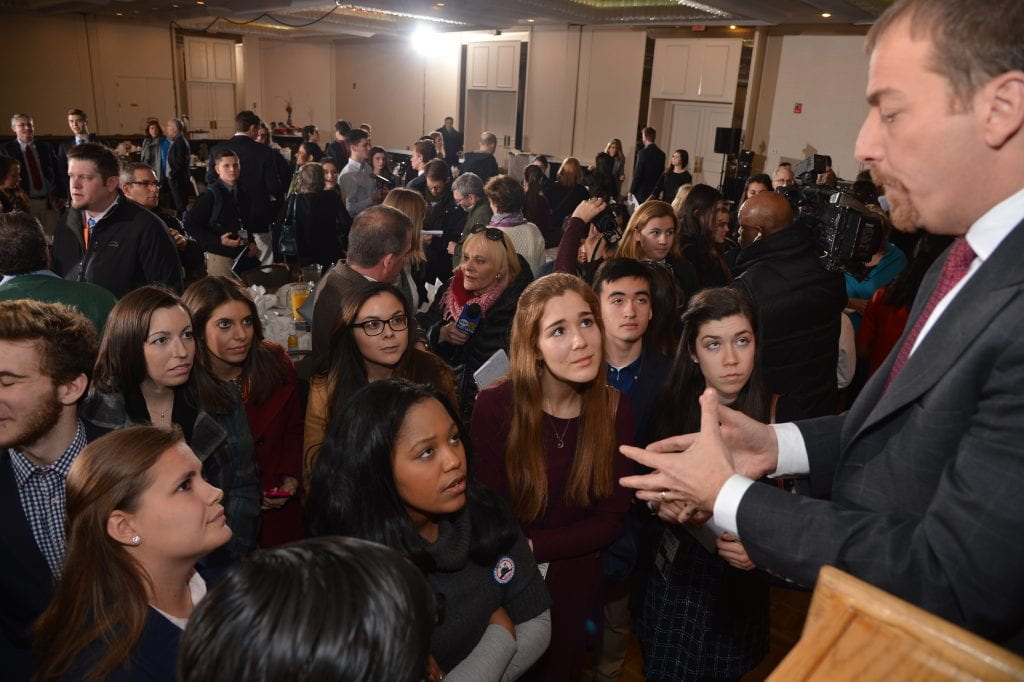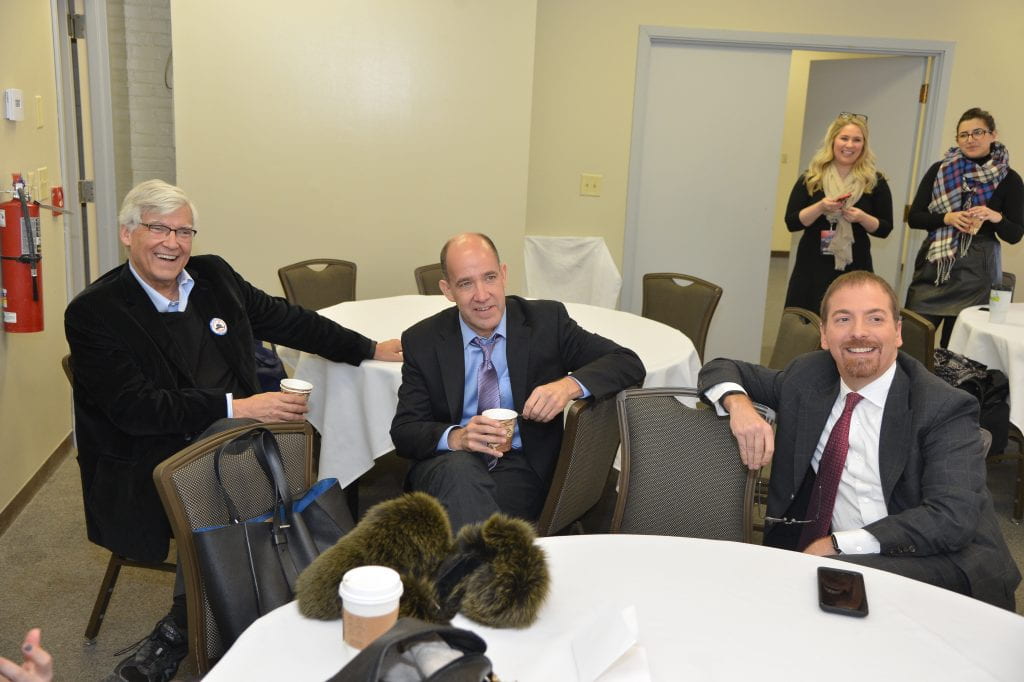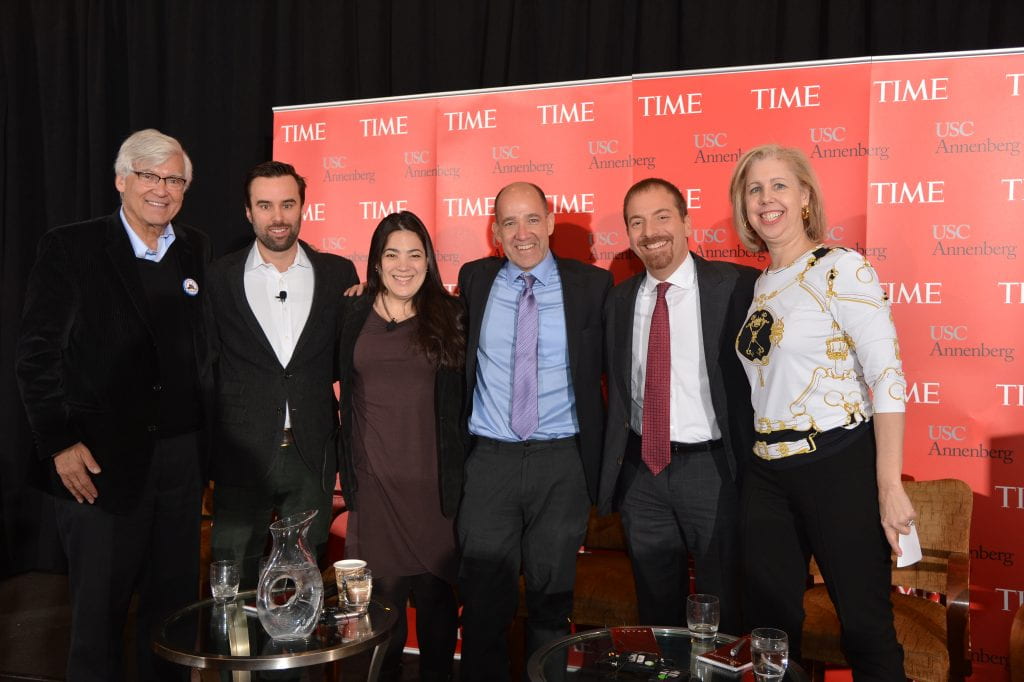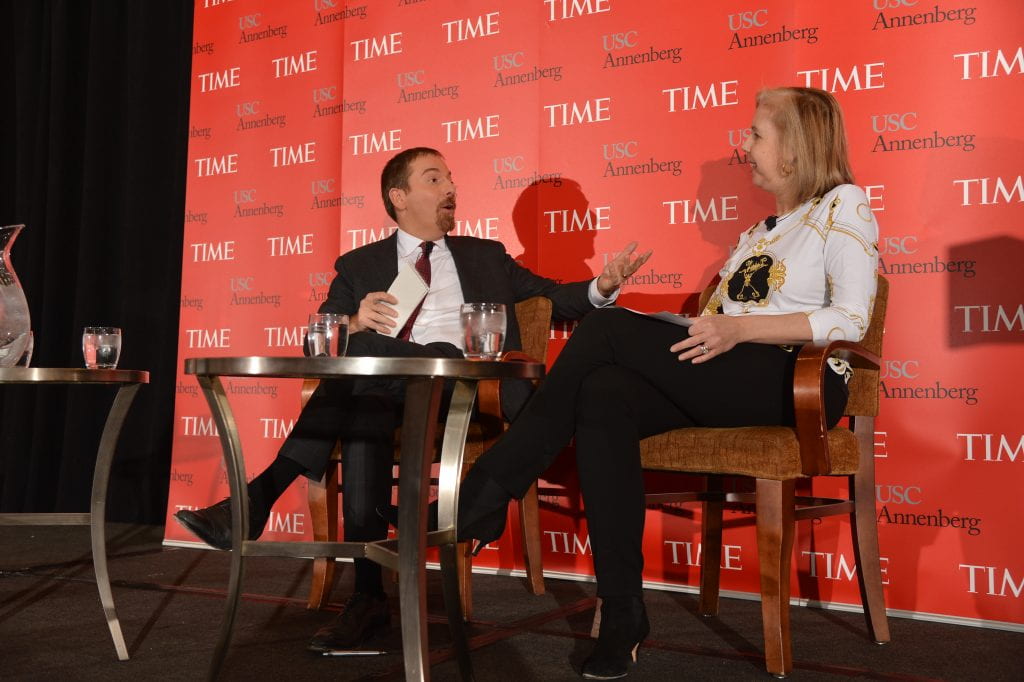
The press is reexamining how it covers presidential campaigns following surprises during this year’s unorthodox election season, according to a panel hosted by TIME Magazine and the USC Annenberg Center on Communication Leadership & Policy (CCLP). Surprises such as the popularity of Donald Trump.
“I didn’t take Trump seriously for two and a half months,” said Chuck Todd of NBC’s Meet the Press. “A lot of us [in the media] were snobs about [Trump’s campaign at first), and we were wrong about it. The story is not about Trump. The story is about the electorate that he tapped into.”
The panel event was held at the Radisson Hotel in downtown Manchester, New Hampshire, on Sunday, Feb. 7, two days before the New Hampshire presidential primary. About 300 people attended, half of whom were students from nearby colleges and high schools. TIME editor Nancy Gibbs moderated the panel, which included several top political journalists, including TIME Washington Bureau Chief Michael Scherer, TIME Washington correspondent Jay Newton-Small, ABC News analyst and special correspondent and CCLP senior fellow Matthew Dowd, and Todd.
The panel provided analysis of the major Republican and Democratic presidential candidates and covered topics like the uselessness of political ads despite the consultant class making mountains of money off them; taking Trump’s campaign seriously because of the seriousness of the electorate he has tapped into; anxiety about the transitioning economy; the mechanics of crafting a good debate question; the lack of good, smart people running for office; whether or not Clinton is running as a woman; and the craziness yet effectiveness of the presidential primary system.
Just before the panel event, entitled Super Sunday before the New Hampshire Primary, Todd had several presidential candidates on Meet the Press, including Hillary Clinton, Bernie Sanders and Donald Trump.
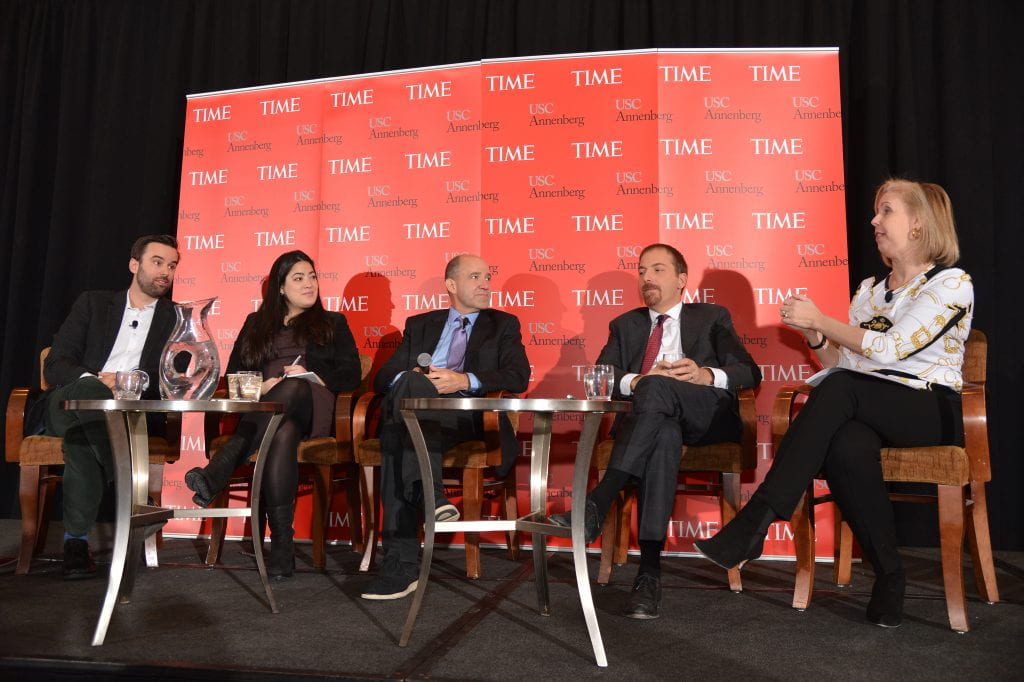
Gibbs asked Todd about his performance as moderator of the Republican debate on Feb. 4. Todd said earlier moderators made the mistake of coming up with really good interview questions that were not good debate questions.
“A good debate question points out a distinction between candidates onstage,” said Todd. “You have to ask questions that help voters that [the candidates are] trying to appeal to in that moment deal with the distinctions that they may have. You throw out a concept, and let the candidates go back and forth.”
The panelists all agreed that Marco Rubio’s performance at the most recent Republican debate was a disastrous one for him, especially his repeating the exact same scripted line four times in a row after being criticized for being “robotic.”
“We have this universally flawed field of candidates and we’re being told to choose from them,” said Dowd. “Unless the parties respond to what’s happening, they will be ancient history.”
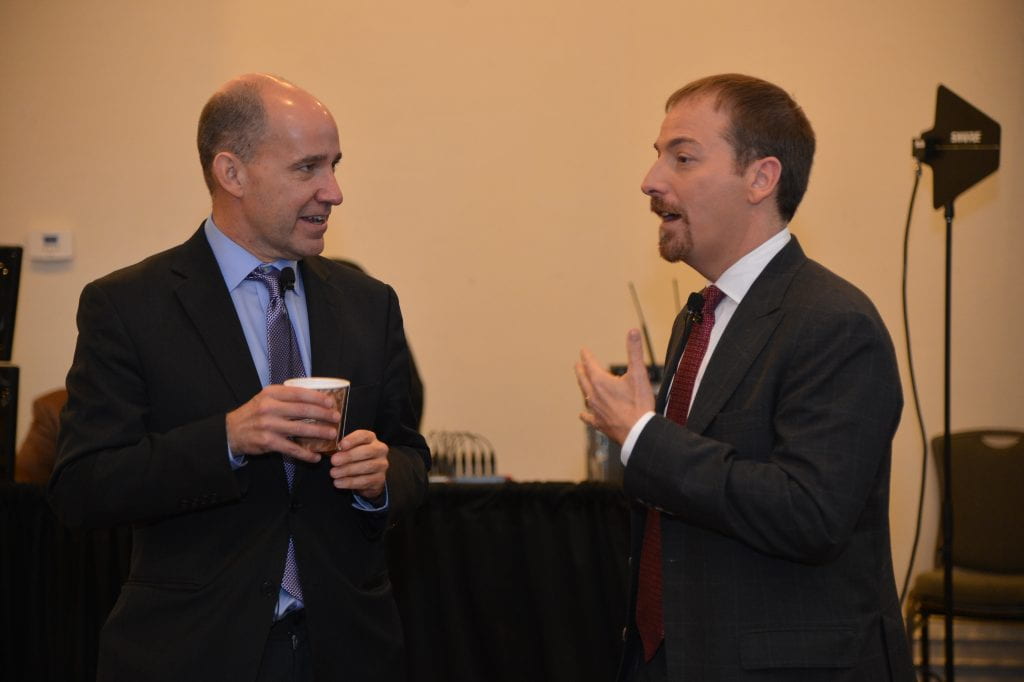
Todd noted that the situation gets worse every election cycle.
“We’re in a worse position now because we are in this vicious cycle where good people won’t run for office anymore,” he said. “The collective IQ of Congress goes down 10 points every two years because smart people won’t run.”
Dowd pointed out the popular conception that New Hampshire “picks presidents” and said, “You, New Hampshire voters, are about to pick a democratic socialist and a reality TV star; that’s about to happen.”
Scherer agreed that the current presidential primary process is “insane,” but added, “As crazy as it is, it’s pretty effective. There is a vetting that happens. It’s a grueling vetting. This process as absurd as it is objectively, and even undemocratically, it works.”
Todd agreed, adding, “As crazy as it is, it actually prepares future presidents temperamentally for the craziness of being president.”
About 300 people packed the ballroom of the Radisson Hotel, the de facto headquarters of the press in the heat of the primary campaign, including dozens of high school and college students studying politics.
Gibbs opened the event by talking about the significance of the New Hampshire primary, noting how all three of the last presidents—Bill Clinton, George W. Bush and Barack Obama—all lost the New Hampshire primary, despite New Hampshire’s reputation for “picking presidents.”
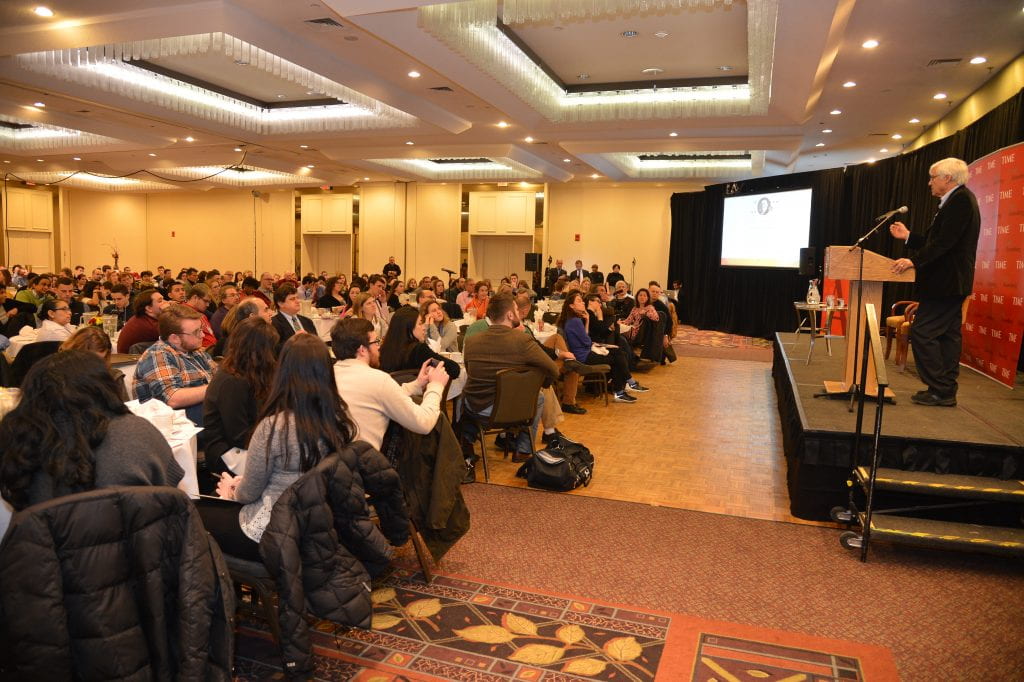
CCLP director Geoffrey Cowan delivered a brief presentation about the history of the presidential primary, describing the four stages of selecting candidates: in the beginning presidential candidates were chosen by the members of Congress; in 1832 Andrew Jackson is widely credited as creating conventions to decide candidates; in 1912 Teddy Roosevelt championed the people’s right to rule through primaries; and in 1968 Cowan himself played a small role in changing primary rules.
As a student at Yale Law School in 1968, young Geoffrey Cowan founded the Commission on the Democratic Selection of Democratic Nominees to increase public participation in the presidential selection process while working for Senator Eugene McCarthy’s presidential campaign. Cowan’s research led to a floor vote in the 1968 convention that resulted in sweeping reforms to the primary process.
Cowan’s new book is Let the People Rule: Theodore Roosevelt and the Birth of the Presidential Primary. Dowd urged those in attendance to get the book, saying, “We have a tendency to put historical political figures on a pedestal, and what we learn here is that TR was an unbelievable political strategist.”
Cowan also urged the young people in the room to get involved in the political process.
“To the students here, the world is changing before your eyes,” said Cowan. “And just as a young Geoffrey Cowan played a role in changing the process, so can you. It’s a fun time to be alive, a fun time to be part of the political process.”
Todd and Dowd also encouraged the students in the audience to get involved in the political process.
“Hurry up and get involved and change the system if you’re pissed off and frustrated,” said Todd.
“People in this room, I hope you do this: anybody who wants to run for office, run as an independent for state rep, for city council, for state senate, for county commissioner, for Congress, whether it’s in 2018, 2020, or 2022,” said Dowd. “That’s the only fundamental way the system is going to change.”
